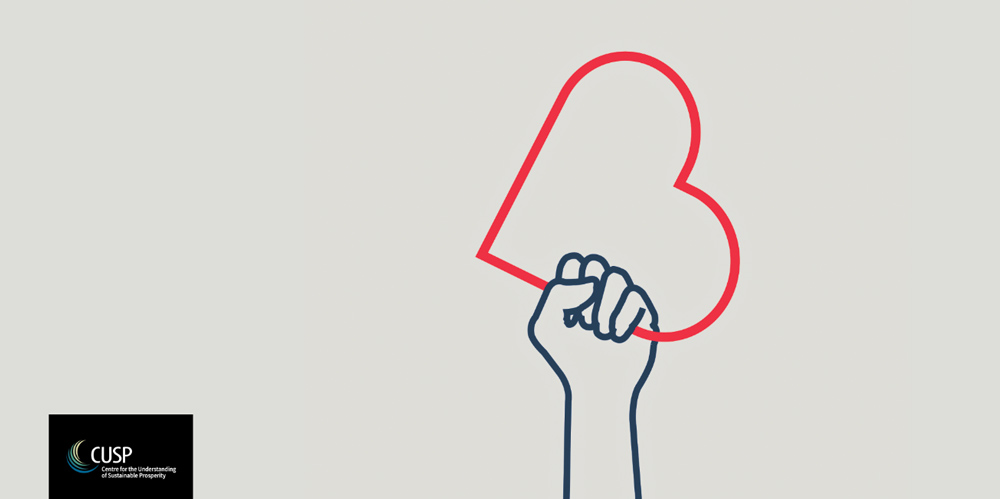What We Care For
CUSP Newsletter, April 2025

Dear Friends and Colleagues,
Welcome to this Spring edition of the CUSP Newsletter. It’s always a bit unsettling when the season of renewal and rebirth arrives all at once, apparently out of nowhere, and (in this case) a little earlier than expected. There’s sometimes a tendency to forget that winter has spent many unsung months doing all the hard preparatory work behind the scenes.
It’s much the same perhaps with intellectual work. The strange and often lonely isolation of research and writing can give way to an unexpected flurry of outputs tumbling over each other to reach the light. So it is at least for us in CUSP right now.
After a long gestation and a slightly delayed release, Tim’s book on The Care Economy has finally arrived in both English and German. A Spanish edition is not far behind. We recently celebrated those first two achievements with lively launch events in London and in Berlin. Early engagements around the book include keynote addresses at the EU Globe conference in the European Parliament, the SCORAI 2025 conference, and a high-profile ‘slow conversation’ in Copenhagen hosted by the Danish broadsheet Information which recently ran a wonderful front-page feature on the book.
Meanwhile, the Chancellor’s Spring statement surprised no one with its familiar refrain of growth at all costs. CUSP’s post growth research might look a little more counter-cultural in this context. But the slow dawning that calling for growth is not the same thing as delivering it is still gaining ground. Our job as ever in the face of gung-ho growth-ism is to ask—as our Nature of Prosperity Patron Rowan Williamsdid in The Guardian and one of our co-Directors (Tim) did in The New Statesman: growth of what?—to what end?—and for whom? In collaboration with colleagues in Barcelona we also published the first serious post growth perspective to reach the pages of The Lancet.
It’s never enough of course to point out that the Emperor is naked. There’s also a pressing need to sketch the preliminary designs for a few new clothes. Our macroeconomic strand of work is now gaining increasing traction in this space with new papers on the modelling of the energy transition and on the implications of resource limits for the wider economy. Our work on food continues to expand the urgent debates around agriculture and farming—this time with an incisive report on cooperative ways to help farmers restore nature. And our CYCLES team has just published an authoritative summary of almost a decade of work on youth lifestyles and wellbeing in seven cities across the world. We were delighted to expand that portfolio recently to Jordan.
It obviously remains as true as ever that our foundational question—what can prosperity possibly mean on a finite planet?—involves a wide range of intellectual disciplines. This edition marks the publication of papers by Will Davies on psychological distress in the ‘asset economy’, by Malaika Cunningham and Marit Hammond on arts-based approaches to democracy and by Mark Ball on place, taste and the appeal of darts in a town like Stoke-on-Trent.
Sadly, it also marks what we like to think of as a temporary setback in another strand of our work, which explores the vital role contemplative science can play in the search for the good life. That was the focus for the oldest and perhaps most surprising member of our CUSP team, Roger Coward who has died aged 85. His dogged pursuit of a PhD on the experiences of advanced meditators came to an end just before midnight on 20th January. He will be sorely missed. But we’re delighted to announce that he’s been awarded a posthumous MPhil from the University of Surrey.
Spring, Summer. Autumn. Winter. Rebirth and renewal is a continual surprise. And occasionally a consolation for our losses.
Kate Burningham and Tim Jackson
CUSP Co-Directors
